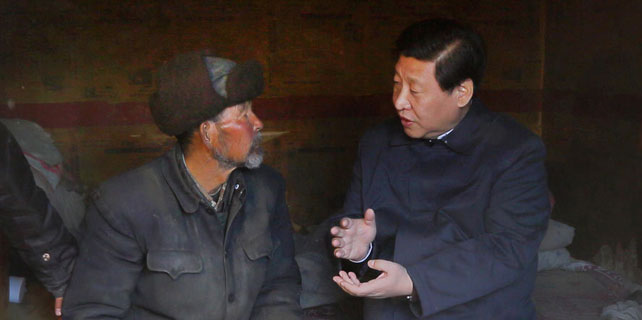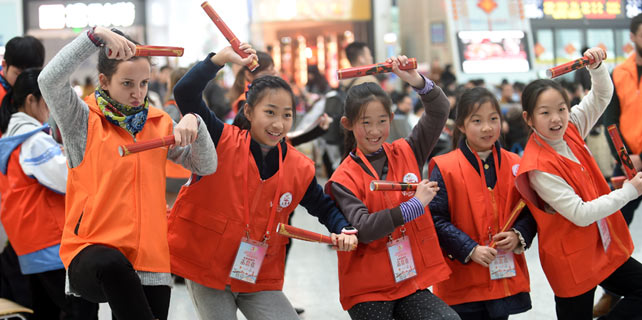Globalization needs rebooting not rejecting
 |
|
A Davos logo is seen before the annual meeting of the World Economic Forum (WEF) in Davos, Switzerland January 15, 2017. [Photo/Agencies] |
President Xi Jinping's powerful message on economic globalization delivered in Davos elicited an exceptionally warm response worldwide. His call for the international community to work together to make economic globalization work for all has rekindled hope and confidence in the process which has been losing steam and even direction.
To be fair, economic globalization has done the world enormous good in the past few decades. Enabled by much freer flows of trade, capital and people, economic globalization has allowed resources, investment and technology to diffuse from the West to its vast developing "periphery", delivering unprecedented prosperity to many countries.
However, economic globalization now stands at a crossroad, weighed down by its inherent weaknesses and mismanagement. Given its profit-seeking nature, capital, when unregulated, inevitably creates winners and losers wherever markets operate. When the going gets tough as in the wave of the 2008 financial crisis, the growing wealth gaps become especially stark.
Western politicians who are mired in party rivalries have been incapable of tackling the combustible combination of stagnant wages, dwindling benefits and rising sense of insecurity among their populations, particularly the middle and lower classes, which has bred anger and frustration. This has in turn fueled the rise of populism and louder calls for protectionism.
The lack of effective economic governance at the global level has not helped. Western-centric global economic institutions have failed to reflect the new reality of the global economy, where 80 percent of growth is now generated by emerging markets and developing countries.
China has been a beneficiary of economic globalization, particularly since its accession to the World Trade Organization in 2001. Since then, thanks to the hard work of the Chinese people, China has become the world's second largest economy and the biggest contributor to global growth. China sees economic globalization as a major trend of our times. Imperfect as it is, the alternative to economic globalization, a closed-door beggar-thy-neighbor approach would ultimately make everyone worse off, which has been proven repeatedly in history. So the question is not whether to accept or reject economic globalization, but instead how to fix its ills and make it work for all.
China's willingness to play a leading role in reenergizing economic globalization has thus been welcomed. Yet, China is aware that it does not have a magic wand that will make the challenges disappear. The future of economic globalization all comes down to how well countries coordinate and cooperate.
To make economic globalization more dynamic, countries must work together to lift the global economy out of the doldrums. Macro coordination should be enhanced, structural reforms advanced, and new growth drivers fostered by harnessing the new round of industrial revolution and the digital economy. China has been doing its part by pursuing supply side structural reforms, and laying the foundations for sustained medium-high growth. China is willing to share its development dividends with others by taking forward the Belt and Road Initiative, which is aimed at facilitating connectivity and common development of the countries along the routes.
Protectionism in all forms must be countered. China will make greater efforts along with other countries to promote trade and investment liberalization and facilitation, and inject fresh impetus into the WTO trade talks and FTA arrangements, in order to promote early conclusion of the Regional Comprehensive Economic Partnership and China-Japan-ROK FTA negotiations and advance an FTA of the Asia-Pacific via the Asia-Pacific Economic Cooperation platform.
To make economic globalization more inclusive, inequality within and between countries needs to be addressed. The pie of development should be made bigger and divided better.
China's vision is clear: Instead of fending for themselves, countries should join hands and make economic globalization more dynamic, inclusive and sustainable, and forge a community of shared destiny for all.
The author is a Beijing-based researcher on international relations.
- No turning back the tide of globalization
- Globalization brings win-win, trade war harms all
- Real leadership requires true globalization
- Australian business leaders back President Xi's calls to embrace globalization
- Scapegoating globalization won't solve economic woes
- Globalization brings shifts in Vietnam
- Pain and gain of globalization






















